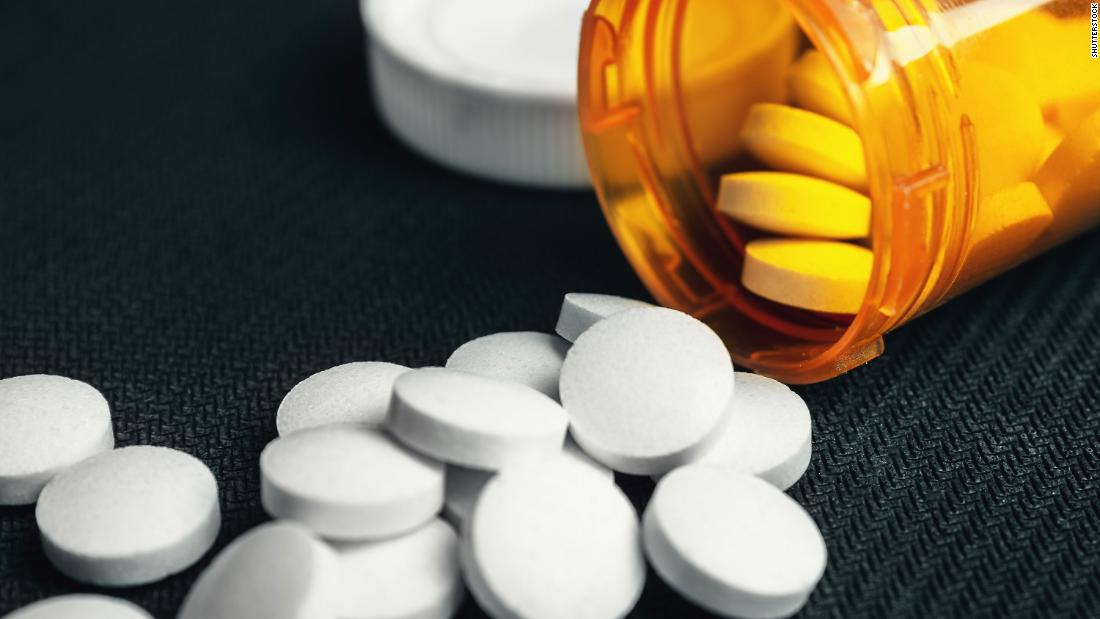
But developing, testing and then getting approval from the FDA, not to mention creating the infrastructure for the production and distribution of a new medication, all takes time -- time the world didn't, and still doesn't, have.
Other researchers quickly began to look around at what was already on hand, in hospitals and pharmacies, and on drug store shelves."The advantage of drug repurposing is that that drug is already approved.David Fajgenbaum, an immunologist at the University of Pennsylvania, and the director of the Center for Cytokine Storm Treatment and Laboratory.
Not to mention: Cheap, generic versions of many older medications exist because their patents have expired."It's just a matter of matching the right drug to the right disease," Fajgenbaum said."Thankfully, there are over 2,000 drugs that are already approved by the FDA for at least one disease, and we've learned that there are many other diseases that those drugs can also be repurposed for."
In fact, Fajgenbaum said he has "dedicated [his] life towards advancing drug repurposing" for diseases without specific treatments.In 2010, while in medical school, he first became ill with Castleman disease, a rare autoimmune disorder that, like Covid-19, can trigger the immune system to suddenly flood the body with inflammatory chemicals in a so-called cytokine storm; the result can be tissue and organ damage, and sometimes death.
Castleman disease brought Fajgenbaum close to death five times -- until he found his own treatment in a repurposed drug."I'm actually alive today because of a drug that was developed 30 years ago for another condition that we identified through a very systematic process and we thought it could help to save my life," he said.CDCN's collaborative method for organizing medical research later became a model for other diseases without treatments.
A blueprint to save livesWhen Covid-19 emerged, Fajgenbaum realized that he was perfectly positioned to look for repurposed drugs to fight it.Let's apply this approach to Covid,' " he said.
With that, they launched the CORONA project (Fajgenbaum is its director and lead investigator), one of many global efforts (both private and governmental) trying to identify, trial and/or track promising treatments among existing drugs for Covid-19.His lab assembled a team of volunteers to systematically go through "all reported cases of any drug being given to any human with Covid-19," and pulling all the information into one database, one central repository.
"Initially we thought there might be maybe a couple of dozen drugs that would be trialed.It's incredible -- there have now been over 400 different drugs, given to patients with Covid-19," he said, noting that the number of patients involved is approximately 270,000.
Fajgenbaum explained that several approaches can be used to make the match between a disease and a potential treatment.Artificial intelligence can also be used to find previously unknown connections between disease processes and medications.
"But at the end of the day, really the only way to know if one of these drugs that looks promising in the lab actually works in humans, is to give it to humans and to see how well those patients do," he said.Testing medications to treat Covid-19 in a trial is critical and tricky.Since people can get better without medication (unlike, say, Castleman disease or pancreatic cancer), it's important to conduct randomized, controlled trials, where patients are randomly selected to get the active drug or a placebo; otherwise it's hard to know if patients would have gotten better on their own anyway.This country's experience with hydroxychloroquine is a case study of what happens when hype gets ahead of the science.For it to work, it appears it needs be given within 24 hours of a patient being admitted to the intensive care unit.
"This isn't a disease where there's going to be one size fits all, one drug that is uniformly effective.In fact, there could be different drugs given during different stages of the disease course," he said.
Other drugs that Fajgenbaum said appear to show promise are baricitinib, which like dexamethasone and tocilizumab also suppresses the immune response and is approved for rheumatoid arthritis, the gout drug colchicine, the blood thinner heparin and intravenous immunoglobulin.Helping critically ill patients survive is one important part of the puzzle.What work can we do to figure out how these drugs that are approved for something can maybe be used in a new way that can save a patient's life,' " he said.
"There are drugs sitting in the neighborhood pharmacy you could potentially [use as] treatment for you or for someone that you love," he said.